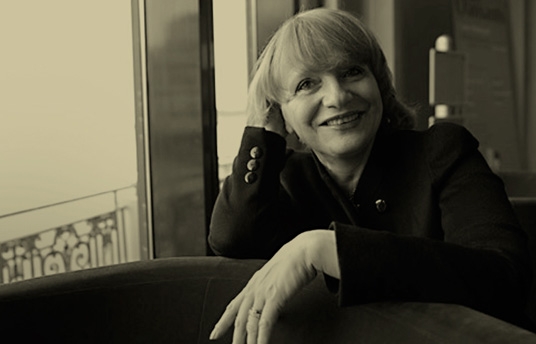People in Film: Teresa Cavina
Oct 22, 2012

We spoke to Teresa Cavina, Programming Director at the Abu Dhabi Film Festival (ADFF).
DFI: What were the criteria at this year’s edition of ADFF?
Teresa: I had two criteria. One was totally based on the quality of the films; the framing, the cinematography and the ability of the director in leading his actors. The other criterion was the audience, because each festival has to relate to its place. It is mindless to think that there are absolute programs, that they work everywhere. It’s not true. Each festival has its own personality, which goes in two directions. The festival was shaped by its audience and was shaping the audience; but the starting point is always to think to whom you are talking to. So the second criterion was to find films of the highest quality but that would start a dialogue with our audience, otherwise it would’ve just been a selfish pleasure.
DFI: Did you feel in the last few years that there’s better dialogue with the local community?
Teresa: Well this is a really interesting question because I think I am different now in the sense that I have learned a lot. I try to understand the audience as much as possible. I’ve studied Arabic Studies so I’m very curious and very interested in the Arabic world. The result is that we have more Arabic and Muslim audiences attending the festival and so there is definitely a dialogue. I may be instinctively modifying my choices and the audience is more present when I’m watching a film.
DFI: Why have you programmed women-only screenings?
Teresa: I became more conscious of the modesty of Muslim women and I became conscious of the fact that they may have questions but are afraid of being misunderstood. That’s why I decided to build an atmosphere that was more women-friendly and it’s maybe just about finding new friends and sharing the same tastes; but above all I wanted to grant women the freedom to express their own opinions without being judged.
DFI: In the MENA premiere of ‘When I Saw You’ by Annemarie Jacir, you mentioned that there’s a love story with this film. Have you been following the film since its beginning?
Teresa: The best privilege for a programmer is to follow a filmmaker from the development on. And that’s what happened with this film. We are all there to support good filmmakers. And it was a love story because I loved the project, I saw the film growing up and I saw the enthusiasm of Annemarie who was struggling to put everything together- besides being Palestinian to make things even [more difficult] worse. And so yes, for me, it was a love story and more like a marriage—like the marriage party when we presented the film here in Abu Dhabi.